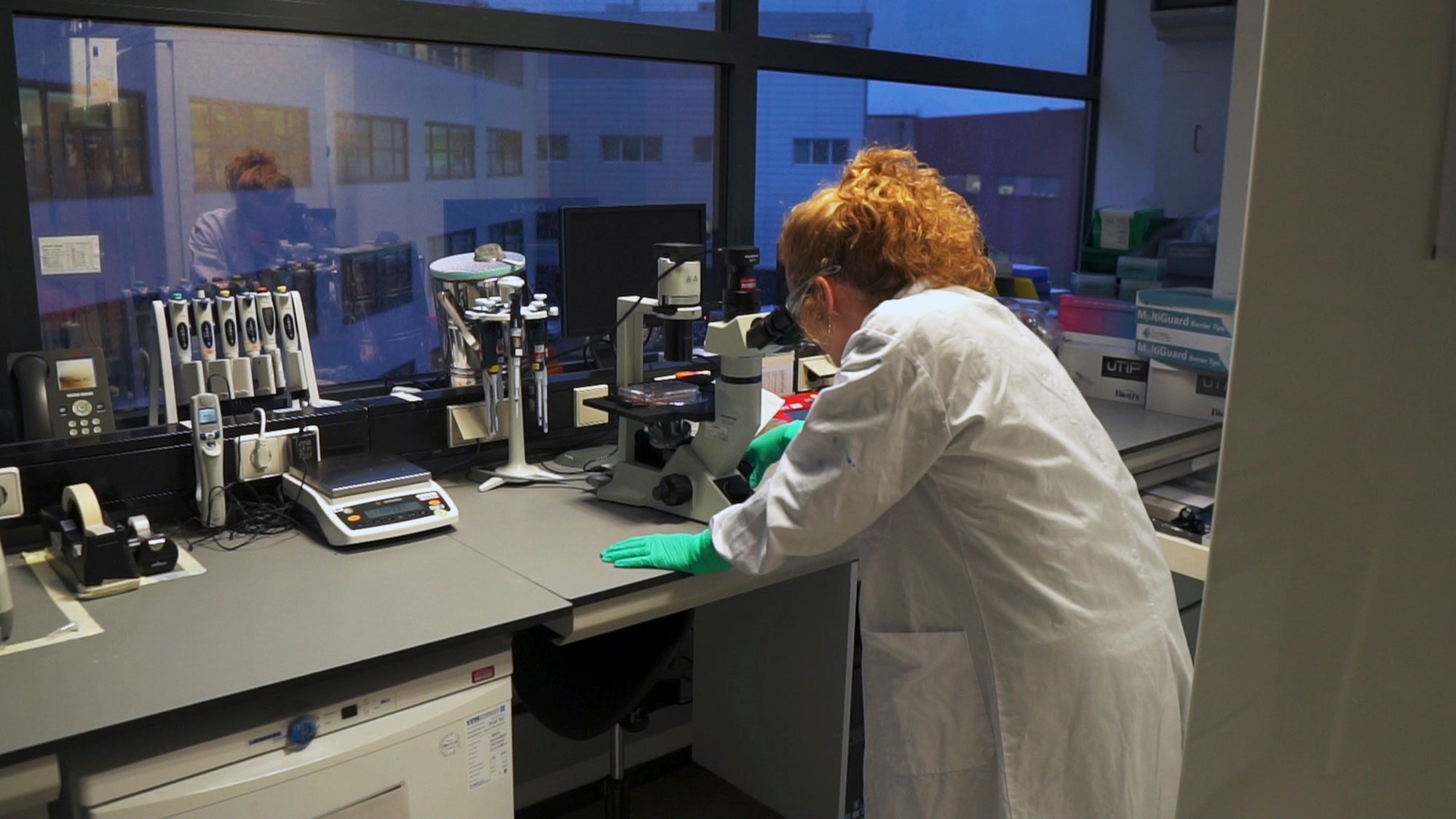VIRUS TODAY: 1-dose shot offers good COVID protection, hope
Johnson & Johnson says its vaccine appears to protect against COVID-19 with just one shot

Your support helps us to tell the story
From reproductive rights to climate change to Big Tech, The Independent is on the ground when the story is developing. Whether it's investigating the financials of Elon Musk's pro-Trump PAC or producing our latest documentary, 'The A Word', which shines a light on the American women fighting for reproductive rights, we know how important it is to parse out the facts from the messaging.
At such a critical moment in US history, we need reporters on the ground. Your donation allows us to keep sending journalists to speak to both sides of the story.
The Independent is trusted by Americans across the entire political spectrum. And unlike many other quality news outlets, we choose not to lock Americans out of our reporting and analysis with paywalls. We believe quality journalism should be available to everyone, paid for by those who can afford it.
Your support makes all the difference.Here’s what’s happening Friday with the coronavirus pandemic in the U.S.:
THREE THINGS TO KNOW TODAY:
— Johnson & Johnson says its vaccine appears to protect against COVID-19 with just one shot It’s not as strong as some two-shot rivals, but it's still potentially helpful for a world in dire need of more doses. Results released Friday show the single-shot vaccine was 66% effective overall at preventing moderate to severe illness, and much more protective against the most serious symptoms. The vaccine worked better in the U.S. compared to South Africa, where it was up against a tougher, mutated virus. The company says it will file an application for emergency use soon in the U.S., and then abroad.
— The Biden administration says it’s taking “creative steps” to build broader public support for its $1.9 trillion COVID-19 rescue plan. Those efforts are happening as attempts to strike a deal with Republicans have led to concerns about delays in coronavirus relief. President Joe Biden and his new treasury secretary said Friday that the cost of doing too little is much greater than the cost of doing and spending too much.
— Event organizers and other logistics experts are using their skills to help the nation vaccinate as many people against COVID-19 as possible. A year into the coronavirus pandemic, cities and states are enlisting nontraditional people in the effort. It’s been done before: During World War II, American toymakers manufactured parts for military aircraft. A prime example is Boston Marathon race Director Dave McGillivray, who’s now running mass vaccination operations at Gillette Stadium and Fenway Park.
THE NUMBERS: According to data through Jan. 28 from Johns Hopkins University, the seven-day rolling average for daily new cases in the U.S. did not increase over the past two weeks, going from 238,906.6 on Jan. 14 to 158,576.4 on Jan. 28. The seven-day rolling average for daily new deaths in the U.S. did not increase either, going from 3,354 on Jan. 14 to 3,258.3 on Jan. 28.
QUOTABLE: “We have learned from past crises that the risk is not doing too much. The risk is not doing enough," President Joe Biden on his administration's $1.9 trillion COVID-19 rescue plan.
ICYMI: The role that race should play in deciding who gets priority for the COVID-19 vaccine has been put to the test in Oregon. People of color will not be the specific focus in the next phase of the state’s rollout. An advisory committee decided Thursday to prioritize those with chronic medical conditions, essential workers and others. But the debate shows a growing commitment to put racial equity at the heart of the nation’s mass vaccination campaign as COVID-19 disproportionately affects people of color. Experts say 18 states included ways to measure equity in their original vaccine distribution plans last fall, and more have likely done so since the shots started arriving.
ON THE HORIZON: An aborted effort to vaccinate Philadelphia residents against the coronavirus raises larger questions about the health care system in the city and nationwide. City officials made an unusual choice when they picked a 22-year-old graduate student to run a large vaccination site. Andrei Doroshin says he and his friends created an online registration site, leased a convention center and lined up practitioners. But questions soon arose about whether he planned to sell patient data, and the city shut the site down. Thousands of people who hoped to get the vaccine are now scrambling to find new appointments.
___
Find AP’s full coverage of the coronavirus pandemic at https://apnews.com/hub/coronavirus-pandemic